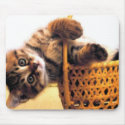 If you haven’t heard this phrase before, let me assure you we are not talking about sprinkling your cat’s food bowl with coins and dollar bills. “Putting money in the kitty” is a term often referring to putting money into a communal pot, where contributions from several people contribute towards the final sum. One of the earliest recorded uses of the word kitty was around the 1800s and referred to the pool of money that accumulates in poker games. Nowadays a kitty can have many purposes other than a poker kitty, and is commonly used to pool money to buy equipment for clubs, schools, charities and events. But why do we call this pot of money a kitty?
If you haven’t heard this phrase before, let me assure you we are not talking about sprinkling your cat’s food bowl with coins and dollar bills. “Putting money in the kitty” is a term often referring to putting money into a communal pot, where contributions from several people contribute towards the final sum. One of the earliest recorded uses of the word kitty was around the 1800s and referred to the pool of money that accumulates in poker games. Nowadays a kitty can have many purposes other than a poker kitty, and is commonly used to pool money to buy equipment for clubs, schools, charities and events. But why do we call this pot of money a kitty?
There are several theories:
Theory 1: Kitty referring to a “kit” container
Around the 1300s, the Middle Dutch word “kit” (also spelled kyt, kitt, or kitte) referred to a wooden tub, barrel, pail, jug or tankard. If tools were put into this container, it became a toolkit, and if medicinal tools were put into it, it became a medical kit, but if money was put into a small container, it was just known as a kit, kitte or a kitty. This theory seems to be a favourite amongst etymologists.
Theory 2: Kitty referring to prostitutes that collected poker money
Another theory suggested by Willard Epsy in his book “Thou Improper, Thou Uncommon Noun” is that the term kitty arose from its use in poker. Epsy proposes that “kitty” comes from the name Catherine which is sometimes nicknamed to Kitty. Poker playing was often done in environments where prostitutes were around, and a “Kitty” was a term often applied to one of these ladies. The story goes that the poker players would toss their coin bets into the laps of the nearby watching Kittys, and thus the term “kitty” arose to refer to the pool of money. As far as I’m aware, this theory isn’t particularly favoured amongst etymologists.
Theory 3: Kitty referring to a prison-like closed box of money
Kitty is an old slang-term for prison, and it could be that the term was transferred to mean a “pot of imprisoned money” because the money was not allowed to be removed until the kitty was full. The link between imprisonment of money and imprisonment of people seems like a bit of a stretch and is only a tentative explanation proposed by the Oxford Dictionary.
Theory 4: Kitty cat as cockney rhyming slang for a hat
Another theory that is sometimes touted around pubs is that kitty cat is a cockney rhyming slang for hat, and since money in poker games was often tossed into a hat, this became known as the “kitty”.
References
Random House Webster’s Unabridged Dictionary, Second Edition
The Oxford Dictionary of Word Histories (Oxford Paperback Reference)
The American Heritage Dictionary: Fourth Edition (21st Century Reference)
Collins English Dictionary: 30th Anniversary Edition (Dictonary)
New Oxford American Dictionary
Related Products
Note:
This site is working in affiliation with Amazon.com and Zazzle . If you like a product that was recommended anywhere on this website, please consider buying these products via the links on this site, to help keep this website running. Thanks ![]()







Do Americans use this expression?
Yes, we do.
American here. Never heard of it until I watched The Weakest Link (non-us edition)
I am from Indiana, and yes, we do use this expression to mean a pool of money. We use the term when referring to our “Florida or Bust” bucket of money that we gather for trips to the beach.
I live in New Zealand and in the language of the Maori of New Zealand, a kete is a basket. Money left, not in the “kitty,” but money left in the “kete.” Google will tell you how to pronounce this Maori word but is sounds close to “kitty.” This is why Americans and Brits can’t come up with an explanation for this saying